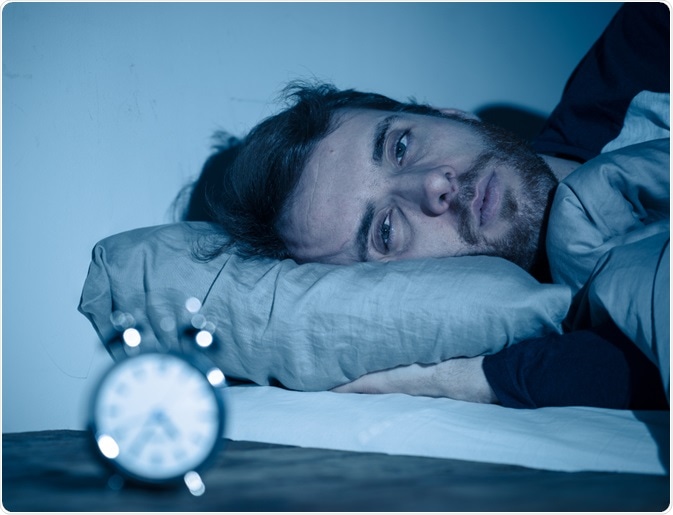Insomnia is a sleep disorder that affects a person’s ability to fall asleep or stay asleep for long enough to feel replenished the following day. The resulting tiredness can affect a person’s quality of life, making it difficult to concentrate or function as usual during the day.
What is Insomnia?Causes, Signs and symptoms, Diagnosis and treatment
Insomnia is thought to affect around a third of individuals in the United Kingdom at some point in their lives. Women are more likely to develop the condition as compared to men, and it is also more likely to occur with increasing age.
Classifying insomnia
Insomnia can be classified as either primary or secondary. Primary insomnia has no obvious cause, whereas secondary insomnia arises as a result of another underlying health condition.
Insomnia is also described as acute or chronic. Acute insomnia is short-term and may last anywhere from one night to as long as four weeks, whereas chronic insomnia is defined as insomnia that occurs for at least three nights per week for a month or longer.

Image Credit: Sam Wordley / Shutterstock.com
Symptoms
The symptoms of insomnia can vary significantly from person to person. Some people may develop severe symptoms and are subsequently unable to fall asleep at all for long periods of time, while others may fall and stay asleep for the duration of the night, but not feel refreshed when they wake. Often, people suffer from problems during the day as a result of difficulty focusing or being able to stay awake.
Difficulty falling asleep
People affected by insomnia may lie in bed for hours but find that they are unable to fall asleep. This problem can last for long periods, leading to severe sleep deprivation, which has a very negative impact on daily life.
Waking during the night
Sometimes people with this condition do manage to fall asleep but then wake up frequently throughout the night. This inability to sleep through the night can mean that people wake up without feeling properly rested and refreshed, which can also lead to problems in the day.
Waking early
Some people with insomnia may be able to fall asleep and stay asleep for a period of time but then wake up in the early hours of the morning, at 3 or 4 am, for example. Despite feeling extremely tired or exhausted upon waking up, these individuals are often unable to drift back off to sleep.
Not feeling rested
Despite some individuals with insomnia do manage to sleep through the night, they still do not feel refreshed upon waking up the following morning. This is often due to extended periods of light sleep or as a result of sleep disturbances that disrupt the stages of sleep needed for adequate rest.
Sleepiness in the daytime
People affected by insomnia often find that they feel exhausted and sleepy throughout the day. As a result, these individuals may rely on a high caffeine intake to keep them awake throughout the day. However, increasing the intake of this stimulant only worsens the sleep problems already being experienced during the night. Individuals with insomnia should therefore avoid drinking caffeinated drinks or any other substance that might disrupt sleep.
Difficulty focusing on tasks
Insomnia can decrease mental function and lead to problems thinking, concentrating, and/or paying attention during wake hours. This can have a significantly negative impact on people’s performance at work or school.
Additional symptoms
Other symptoms that a person with insomnia may experience include:
- Headaches
- Irritability
- Anxiety
- Depression
- Gastrointestinal problems
Diagnosis
Doctors use a number of approaches to diagnose and measure insomnia symptoms. Patients may need to fill out questionnaires, keep diaries, have certain blood tests, and even undergo an overnight sleep study. Understanding the individual symptoms a person is experiencing can help the doctor to decide on the most appropriate treatment plan.

Image Credit: Gorodenkoff / Shutterstock.com
Sleep log
A sleep log is a simple diary the patient keeps that tracks the details of their sleep such as bedtime, time of waking up, and the presence of any feelings of sleepiness throughout the day. This log may also help a doctor to work out any underlying cause of insomnia.
Sleep inventory
A sleep inventory is a comprehensive questionnaire that is used to collect data about the patient's current health, medical history, and sleeping routine.
Blood tests
Certain blood tests may be carried out to check for medical conditions that can disrupt sleep and cause insomnia, such as hyperthyroidism.
Overnight sleep study
An overnight sleep study, which is also known as polysomnography, involves the patient sleeping in a laboratory set up overnight in a comfortable bed so that the information can be collected about their night-time sleep. While the patient is asleep, an electroencephalogram is carried out to monitor their brain activity during the different stages of sleep. This non-invasive test also measures factors such as body movement, oxygen levels, heart rhythm, and breathing patterns.
References
Further Reading
Last Updated: Jan 18, 2023